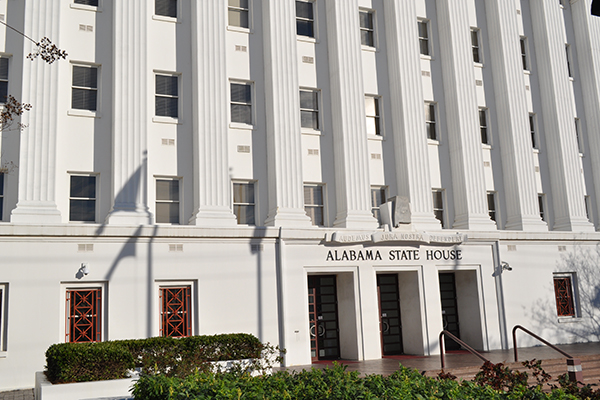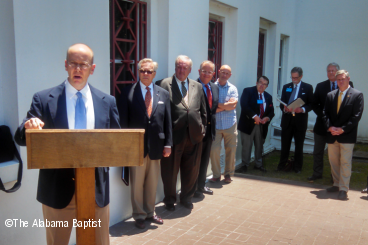While Alabama lawmakers and lobbyists continue to skirmish over a General Fund bail-out offer by the Poarch Band of Creek Indians (PCI) in exchange for exclusive gambling rights, the tribe is battling separate but potentially related issues in the courtroom.
In a lawsuit filed in December 2012, the Muscogee (Creek) Nation seeks to halt construction of a $246 million expansion of a Wetumpka casino operated by PCI at Hickory Ground, a sacred ceremonial site and burial ground. Defendants in the case include PCI, construction contractors Flintco LLC and Martin Construction Inc., Auburn University and the U.S. Department of the Interior, according to Indian Country Today.
Graves relocated
The lawsuit accuses PCI of desecrating the Oklahoma-headquartered Muscogee (Creek) Nation’s ancestral home by digging up and relocating approximately 57 sets of remains and preventing the land’s use as a ceremonial site by developing it as a casino. Hickory Ground, which is listed on the National Register of Historic places, was the last capitol of the Muscogee Creeks and includes the graves of ancestors who lived and died there before the tribe was forced from its Alabama homeland on the Trail of Tears to Oklahoma.
The civil dispute also has spawned other courtroom battles. In January a Wetumpka jury overturned the conviction of a Native American activist for trespassing and disorderly conduct at the site when he tried to pray for his ancestors buried there, according to Indian Country Today.
The Muscogee (Creek) Nation lawsuit is still pending, and earlier this summer the dispute was taken to the U.S. House of Representatives.
In May, testifying before the House Indian, Insular and Alaska Native Affairs Subcommittee, PCI’s Attorney General Lori Stinson accused the Muscogee Creeks of “misleading allegations” in the lawsuit.
Stinson told House committee members that PCI learned in 1980 that the Hickory Ground property was for sale and a “big box” store was planning to develop the 34-acre site. After PCI received federal recognition in 1984, the tribe was able to obtain a grant from the Alabama Historical Commission to purchase the property. Stinson said the tribe fulfilled its 20-year preservation covenant with the commission and contends it has sovereign authority over the property.
The Muscogee Nation of Oklahoma raised the issue again in a June 2 letter urging Gov. Robert Bentley not to sign a gambling compact with PCI because it would appear to convey the state’s blessings on desecration of sacred Native American ancestral grounds.
Muscogee Principal Chief George P. Tiger wrote, “A gaming compact with the Poarch Band would implicitly ratify that desecration and fraud, because the revenues paid to your state would come from a casino built on our historical site, ceremonial grounds and ancestors’ burial grounds.”
Other legal battles
Closer to home, PCI is locked in two legal tussles.
Alabama Attorney General Luther Strange has filed suit in federal court seeking to make PCI comply with state bingo laws rather than run their casino-type machines.
Strange cites the 2009 U.S. Supreme Court case decision in Carcieri v. Salazar as his reasoning. That ruling said only Native American tribes recognized by the federal government prior to 1934 could benefit from the U.S. Department of the Interior’s efforts to set aside state land for Native American reservation use. PCI was not recognized until 1984.
PCI’s other legal issue is with James Hildreth Jr., the Escambia County tax assessor who is attempting to collect taxes on property the tribe says is not taxable according to federal law. Hildreth notified PCI in March that his office had completed an appraisal of the property, which includes the Wind Creek casino in Atmore, and would proceed with assessments. In May the tribe responded by filing a federal lawsuit against the tax assessor.
Some tax experts are questioning PCI’s strategy of offering to bail out the General Fund by covering this year’s $250 million shortfall and helping longterm by paying new state taxes. If taxation is on the table, then why is PCI fighting taxation by a local government?
The Alabama Legislature will soon gather in a second special session to deal with the General Fund budget crisis. The legislators need to hear from you about your concerns.
To find the contact information for your state senator or representative, visit http://capwiz.com/state-al/home/




Share with others: